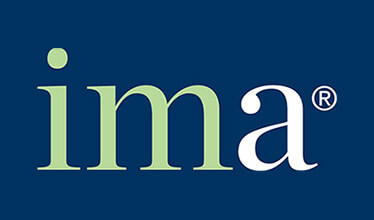On 31st December 2019, the world prepared to bid farewell to the past year with much enthusiasm. But the mood in hospitals across the Chinese city of Wuhan was far from celebratory. The Wuhan Municipal Health Commission had issued an urgent notice on the ‘treatment of a pneumonia of unknown cause’. In response, the city hospitals held an emergency symposium to contain the onset of a potential epidemic.
This was the beginning of the outbreak of the novel coronavirus now named COVID-19. Since then, the epidemic has spread worldwide – infecting over 90,000 persons across 73 countries and claiming over 3,100 lives. The rapid spread of the disease prompted the World Health Organization to declare it as a ‘public health emergency of international concern.’ As things stand today, the future remains largely uncertain.
Besides the health impact, the economic consequences of coronavirus are intensifying with each passing day. Factory disruption in China, the world’s manufacturing hub, has sent the global supply chain into a tizzy. In the last week of February, global stock reported their largest-single week decline since the recession in 2008. Mounting worries of the coronavirus outbreak have led to a steep decline in global oil prices. In contrast, gold prices have registered a significant increase.
The far-reaching consequences of the pandemic can potentially plunge the global economy into another recession. As organizations prepare to face unanticipated twists and turns, they need to prepare for operational disruption. Here are some ways in which they can lead their stakeholders through the crisis:
1. Communicate effectively and efficiently
Conflicting information creates confusion and adds to the chaos. To avoid this scenario among your team members, be sure to communicate policies promptly and in an even-handed manner. Singapore’s Health Minister Gan Kim Yong’s Parliamentary speech on whole-of-the government’s efforts to combat the disease is an excellent example. Providing context to policies enables stakeholders to take proactive decisions about their professional and personal travel and work-related decisions.
2. Smoothen out the path to enable remote work
Now is the time for organizations to spend their resources on remote work options. A large number of global organizations have taken the lead in this direction by encouraging employees to work from home as ‘an abundance of caution.’ They are leveraging the ubiquity of technology to optimize employee productivity in this scenario. Multiple organizations are also testing waters to see if their systems can successfully handle all of their employees working remotely.
3. Counter fear with facts
Although highly infectious, WHO estimates the mortality rate of coronavirus at a mere 3.4%. Scientists peg it at ~1%. Further, approximately 80% of those who died were over the age of 60, and 75% had pre-existing health conditions such as cardiovascular diseases and diabetes. While containing the virus is a priority, it is essential to know that the chances of recovery are higher than death. So, in the unfortunate scenario of contracting the disease and being quarantined, it is best to keep calm and focus on healing.
4. Follow advisory from trusted sources
Employees must be made aware of facts about the pandemic and not believe everything that is shared on social media platforms. Encourage them to avail information from global agencies such as the World Health Organization and the UNICEF for credible information on disease prevention and management. Further, provide access to guidelines and advisory issued by the government in dealing with the virus.
5. Foster transparency
94% of the Fortune 1000 companies are witnessing disruptions due to coronavirus. In difficult times like these, companies need to foster timely and accurate communication with their stakeholder ecosystem. They need to dwell on the short, medium and long-term impact of the operational disruption and provide visibility of the impact on their business. Global leaders, such as Microsoft and Apple, have undertaken measures in this direction. High levels of transparency should not be mistaken as a weakness or vulnerability. Instead, it indicates proactive risk management and implementation of sound governance practices.
6. Motivation is key
Without a doubt, coronavirus is an epidemic of rare magnitude. Motivation is the key to combat the crisis. In Singapore, the government recently announced measures to recognize the hard work of healthcare workers. Malls in China have come up with a novel way of rewarding workers who have kept to their outdoor posts during this time. They are offering them free drinks and snacks. Such initiatives may seem like small gestures. But their potential effect can be significant. Organizations should motivate their stakeholders, especially employees and partners, to put their best foot forward in the backdrop of the crisis.
7. Live your purpose
The coronavirus crisis is an opportunity to foster a culture of empathy and solidarity within organizations and across economies. As corporate citizens, organizations should continuously evaluate how their products and services can contribute to the global fight against the epidemic. For instance, Bayer, the global pharmaceutical leader, is donating medicines and additional financial aid worth a total of approximately EUR 1.5 million to support the population affected by the outbreak of the novel coronavirus in China. Several US-based companies are aiding China with donations despite the bitter trade war between the two countries.
8. Learn from the challenge
The coronavirus is not the first epidemic to face our world. Neither is it the last. Beyond its potential pitfalls, the crisis offers some valuable lessons in dealing with emergencies of this scale and nature. Organizations can start with developing robust business continuity plans for operations and design their supply chain to negate the risks arising from such situations. Build a PR program that is founded on frequent, accurate and transparent communication with the stakeholder ecosystem.
At the end, in crises like these, prevention and pre-emptive measures are likely to bear better results than reactive and ad hoc responses.











